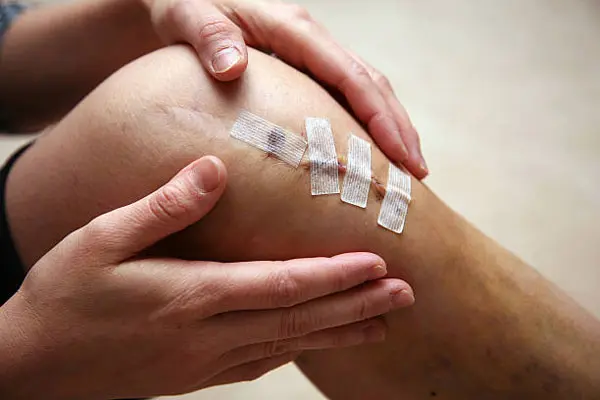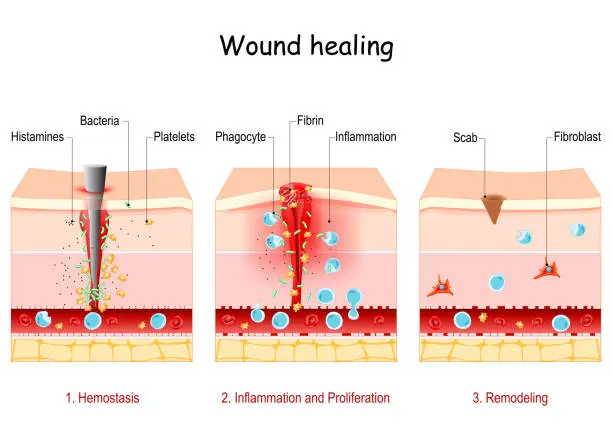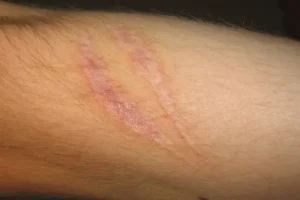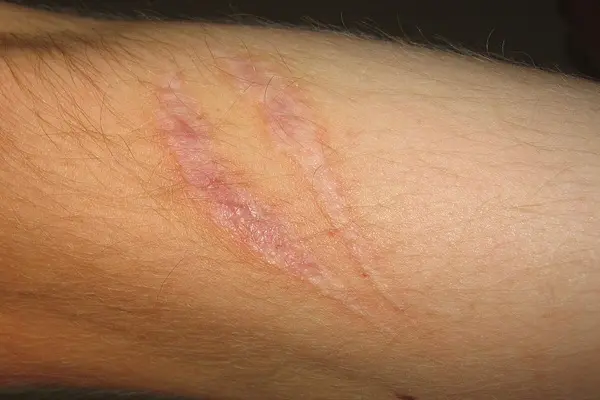Tissue repair peptides show great results in studies for faster healing and improved soft tissue repair. These compounds target cells that help repair and regenerate tissue, supporting the healing process and collagen synthesis.
Research shows BPC-157 and TB-500 work well for tissue repair by improving blood flow and supporting connective tissue recovery. Hexarelin supports tissue repair through growth hormone stimulation and anti-inflammatory mechanisms, engaging growth factor signaling pathways.
At Peptide Works, we sell high-quality research peptides to scientists worldwide. We ship globally to support research projects everywhere, including the United States. Knowing which peptides work best helps researchers select the most effective ones for studies involving different tissues and muscle tissue.
These peptides are intended for research use only, not for human consumption. Studies show they help with different types of tissue healing after tissue injury and show significant potential in regenerative medicine.
Explore Hexarelin from Peptide Works, a peptide studied for boosting growth hormone release and aiding tissue repair and regeneration.
How Does BPC-157 Help With Tissue Healing?

BPC-157 helps tissue healing by boosting key natural biological processes. It promotes the formation of new blood vessels, which supply oxygen and nutrients to injury sites and help reduce oxidative stress.
This peptide supports collagen production, strengthening tissues during repair and aiding protein synthesis. Studies show it reduces inflammation, which can slow healing if uncontrolled, and helps regulate immune responses.
BPC-157 improves growth of tendons, ligaments, muscles, and bones. It supports healthy muscle mass and body composition during recovery.
It also shows effects on vascular endothelial growth factor activity, supporting tissue regeneration and improved healing outcomes. These effects make BPC-157 popular among researchers studying tissue repair mechanisms and clinical translation potential.
Additional benefits include reduced pain relief needs and protection of gut health, with promise in ulcerative colitis research.
Discover BPC-157 from Peptide Works, a peptide studied for enhancing tissue regeneration and supporting faster recovery processes.
Why Is Collagen Production Important for Tissue Repair Peptides?
Collagen plays a big crucial role in how tissue repair peptides work. It helps rebuild damaged skin, muscles, and bones, improving skin elasticity and structure. Strong collagen fibers support healing and make tissues tougher.
Peptides such as BPC-157, TB-500, and Hexarelin stimulate collagen production, helping to accelerate recovery. More collagen means less scarring and faster tissue repair through enhanced biological activity, which can help reduce the impact of degenerative diseases.
It also helps keep joints healthy by strengthening articular cartilage. Without enough collagen, healing can be slow or incomplete. These peptides work by supporting the body’s natural collagen production for better tissue healing and overall quality of life.
What Makes TB-500 Effective for Tissue Repair?
TB-500 is effective for tissue repair because it boosts cell movement to injured areas. It promotes healing by encouraging blood vessel growth and supporting immune system balance during recovery. It reduces inflammation, helping tissues recover faster and minimizing potential side effects linked to delayed repair.
TB-500 supports the repair of muscles, tendons, ligaments, and skin. It does this by stimulating stem cell activity and the action of therapeutic agents.
This peptide also helps maintain joint flexibility and reduce stiffness. Studies show it reduces scar formation and improves overall tissue strength. It does this by regulating immune cells and enhancing structural stability.
TB-500 works well alongside peptides like BPC-157 to enhance healing. It helps create a better environment for tissue restoration and faster recovery. It shows significant improvements in experimental clinical research settings.
Discover TB500 from Peptide Works, a peptide studied for promoting tissue repair and enhancing cell migration for faster recovery.
How Does Hexarelin Support Tissue Repair Processes?

Hexarelin supports tissue repair by stimulating natural growth hormone release. This growth hormone boost helps muscles, bones, and tendons recover faster. It also reduces inflammation and protects heart tissue from damage.
Hexarelin works differently than other tissue repair peptides like BPC-157 or TB-500. Studies show it helps with injury recovery and joint health improvement.
This peptide maintains overall tissue strength and flexibility during healing. Its effects include faster recovery and better muscle growth. These benefits make Hexarelin valuable among tissue repair peptides for research.
Which Types of Injuries Benefit Most from Tissue Repair Peptides?
Different injuries respond well to tissue repair peptides depending on the tissue and damage severity. Muscle tears, tendon strains, and ligament sprains heal faster with peptides like BPC-157.
Joint injuries improve due to reduced inflammation and better collagen support. Skin wounds regenerate quicker thanks to enhanced cell growth.
These injuries are common in sports and accidents, so researchers focus on them. Peptides help reduce scar tissue and speed recovery times.
They also strengthen damaged tissues for better healing. This focused approach improves study accuracy and healing outcomes.
How Do Tissue Repair Peptides Reduce Scar Formation?
Tissue repair peptides can lower scar formation by keeping inflammation in check during healing. They help balance collagen levels to stop excess buildup.
By regulating cells that create scar tissue, these peptides reduce fibrosis. This means scars become softer and less noticeable. They also boost skin regeneration, helping skin regain smoothness after injury.
Increasing new blood vessel growth is another way these peptides speed healing. Studies show they support healing without scarring in many tissues. These effects make tissue repair peptides important for better wound care.
The Future of Tissue Repair Peptides
The future of tissue repair peptides such as BPC-157, TB-500 and Hexarelin holds promise based on current studies and insights from recent systematic reviews. Scientists continue to explore new healing possibilities for these compounds in various tissue types across the human body.
Research may lead to more targeted and efficient peptides for different healing applications, supported by innovations in drug delivery. Peptide Works supplies research-grade peptides to scientists worldwide for their studies.
These compounds allow researchers to investigate potential healing therapies in controlled environments using short chains of amino acids, the building blocks of proteins that form the basis of repair and regeneration. Scientific advancements may contribute to progress in wound healing and tissue regeneration fields, as researchers continue to study bioactive peptides and their therapeutic roles in managing chronic pain and chronic joint pain.
The growing research interest in tissue repair peptides suggests continued development in this area, highlighting their high affinity interactions that support advanced medical applications.
All products discussed are supplied for research purposes only and are not intended for human use.
References
[1] Ross A, Sauce-Guevara MA, Alarcon EI, Mendez-Rojas MA. Peptide Biomaterials for Tissue Regeneration. Front Bioeng Biotechnol. 2022 Aug 5;10:893936.
[2] Cushman CJ, Ibrahim AF, Smith AD, Hernandez EJ, MacKay B, Zumwalt M. Local and Systemic Peptide Therapies for Soft Tissue Regeneration: A Narrative Review. Yale J Biol Med. 2024 Sep 30;97(3):399-413.
[3] Zambelli V, Rizzi L, Delvecchio P, Bresciani E, Rezoagli E, Molteni L, Meanti R, Cuttin MS, Bovo G, Coco S, Omeljaniuk RJ, Locatelli V, Bellani G, Torsello A. Hexarelin modulates lung mechanics, inflammation, and fibrosis in acute lung injury. Drug Target Insights. 2021 Nov 27;15:26-33.
[4] Malinda KM, Sidhu GS, Mani H, Banaudha K, Maheshwari RK, Goldstein AL, Kleinman HK. Thymosin beta4 accelerates wound healing. J Invest Dermatol. 1999 Sep;113(3):364-8.









